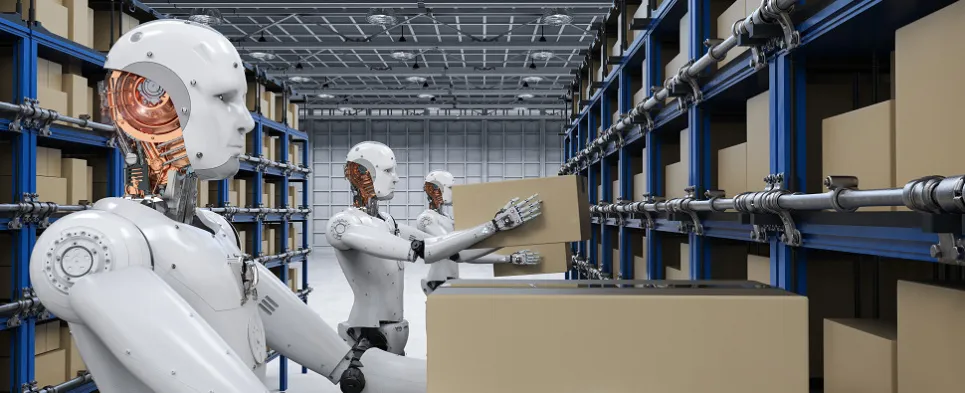The progress made in AI in the packing cycle sector can be considered to be a revolutionary one, as it has focused on Innovation, Involvement of technology and Improvement of sustainability. The AI technology potential lies not only in bespoke and production but also in swift delivery and end user interface, everything is transforming the current packaging life cycle. In this paper, we explore how AI is adding up to the roadmap of improving packaging behaviors that will supply the needs of the future manufacturing system of the same.
AI-Powered Design Optimization
Enhanced Packaging Designs: AI-led technology optimizes the use of data in order to get the best results that ensure the design as well as the material is sufficient and fitting. It can be sophisticatedly concluded that AI technology provided ample opportunities for the process of packaging finding a balance between pleasurable and environmentally confident solutions. Optimization turns into least amount of material in the package and closing loop of waste in the package at most. Design is one more exciting reason for the package.
Predictive Design Analytics: With AI based predictive analytics tools coming on top, packaging innovators now know more than what is going on in a market, why people buy such things, and concerns about regulations. This is achieved through the study of past data sources and markets in order for AI to understand patterns and jewels that came out while learning these and adjusting the packaging design turning into something appealing under the conditions of constant changes in consumer habits and market demands. This ability to think one or two steps ahead is what gives them that chance to be the first to recreate the things and obtain a good design to which the target clientele would react positively.
AI-Driven Manufacturing and Production
Automated Production Processes: AI factories with embedded robots are dedicated to applying the smart order to complete tasks in innovative and labour-free manner, aimed at procuring the product that is more advanced, faster and with low level of impurities, as compared to what people make. AI’s capacity to process real-time raw data can forecast what stage of the integrated mechanism where the production line comes to a halt, highlight what design detail triggered the whole failure process, and manipulate different resources to reduce the production cost and to get it going at a constant level. The AI stands for artificial intelligence that facilitates the company’s growth and being able to give accurate market reaction to whatever unexpected shifts a market makes.
AI-Enabled Supply Chain Optimization
Demand Forecasting and Inventory Management: AI methods employ data derived from the sales history besides market trends and other information points to forecast demand before setting the optimum inventory level. AI can forecast the demand swings and plan and execute the supply chain smoothly which results in proper inventory management, stock outs avoidance and the lower carrying cost. Coming up with a pre-emptive plan for inventory optimization is a way of improving supply chain responsiveness and reliability.
Route Optimization and Logistics: By using AI-driven logistics systems the loss of time, connections, and warehouse operations are controlled resulting in increasing efficiency and decreasing costs. Through taking into consideration factors that include traffic patterns, weather conditions as well as order volumes, AI is able to pick out the most suitable roads and delivery options, therefore maximizing fuel consumption and delivery times. It, therefore, assists in waste-elimination and enhances efficiency in the supply chain; a factor that helps in cutting on the costs and promoting profitability.
Consumer Engagement and Personalization
Personalized Packaging Experiences: AI generates a one-of-a-kind system for getting to know many customers, what they like to buy personally, providing them with the capacity to create their own specific package of goods. AI software can guide marketers, presenting personalized packaging designs, messages, and promotions, consequently, customers, not only become loyal to the brand but also actively participate in marketing with these. It is, by the way, the brand being believed being not only affiliated to the consumers but also how they become more closely or even have deeper connections and loyalty to the brand.
Conclusion
Artificial Intelligence is a possibility of revolution in the packaging industry, which is opening new opportunities for innovation, efficiency and sustainability. Smart packaging is defined as any advanced packaging integration that has either autonomous or interactive communication capabilities with the consumer. Smart packaging technology inserts data sensors and processors in product packaging. The usage of AI-based solutions is quite critical for companies that are in pursuit of the future and unleashing complete creative capacity regarding packaging innovation. While AI is still in its early formative years, its influence on cutting-edge manufacturing systems will swiftly escalate in the near future, culminating in substantial boosts in versatility, responsiveness, and performance of the digital economy.



